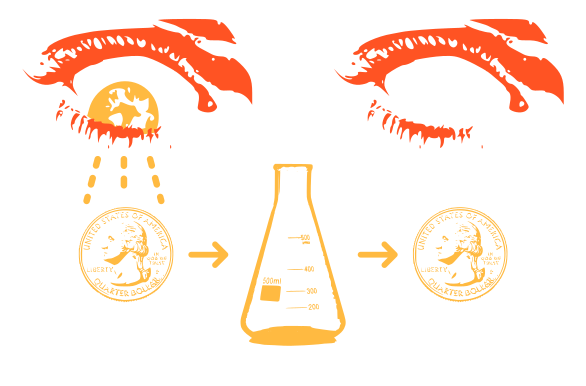Charting the path to a biologically informed system of mental illnesses
Willa Goodfellow ~ Mar '20
A moonshot exploring the human brain at single-cell resolution
Andrew Neff ~ Mar '20
Written & Illustrated by Andrew Neff
December 2018
3 minutes
Academic Publishing
Financial conflict of interest statements are backwards.
When submitting a paper to an academic journal, typically, an author is required to disclose two things
1) Commercial Interests
2) Funding Support
Sometimes, scientists have ownership in a company whose products are the focus of the research. For a reader, knowing that that a scientist has a clear personal incentive for skewing the results is important, because it can help them determine how confident they can be about the paper’s conclusions.


The other variant of conflict of interest is the funding disclosure - who paid for the research? Because if the overtly pro-pot Green Panthers group paid for a research study, you might rightly be skeptical of a conclusion supporting how great weed is.
Commercial and ideological interests are two very obvious sources of potential bias, and therefore scientists are expected or required to disclose. But scientists, as people, have a wide range of personal interests, only some of those are captured by their explicit commercial interests and ties to advocacy groups. Particularly important to many scientists is the interest in having a stable career, and recognition for their contributions. But, for the practicing scientist, in many instances, all goals fall subordinate to the chief objective - obtaining grant funding. Without funding, there’s often little research to be done, and therefore little career stability to be secured, and few contributions to be made.
And getting grant funding is easy enough, pick a problem, show that a solution is really likely and just right around the corner, and that you just happen to be the most uniquely qualified person to bring about that solution, on account of your experience with that type of work. And if you want to prove all of that, it would help to have a published scientific article that supports the claim that there is a solution right around the corner, and that your lab is capable of doing that type of work.
The sort of accepted joke about receiving federal grant funding is that the temporal relationship between grants and research is itself backwards. A scientist needs to have a large body of preliminary data supporting an idea before they can get funded. Once they do get funded, their labs are more free to turn to new ideas, and generate preliminary data which can be used to secure additional grant funding. What this means is that scientist have less of an incentive to appease whoever provided them funding in the past, and more of an incentive to appease whomever they are asking for money from in the future.

Which is the real backwardness. The point of disclosing conflicts of interest is to help readers identify whether they should be a little, or a lot skeptical of what they’re reading. It’s a matter of trust. And often, a scientist’s most glaring conflict of interest can be found by looking at the grant they’re preparing, the one they’re waiting to submit. Because there’s a strong incentive for them to provide data supporting the narrative that a solution is really likely and just right around the corner, and that are perfectly qualified to bring that solution.
So, first, do you agree that prospective funding is an important source of conflict of interest? Is it thee most source of conflict of interest? And if it is, how in the world could you actually enforce scientists to disclose funding they are hoping to apply for?























